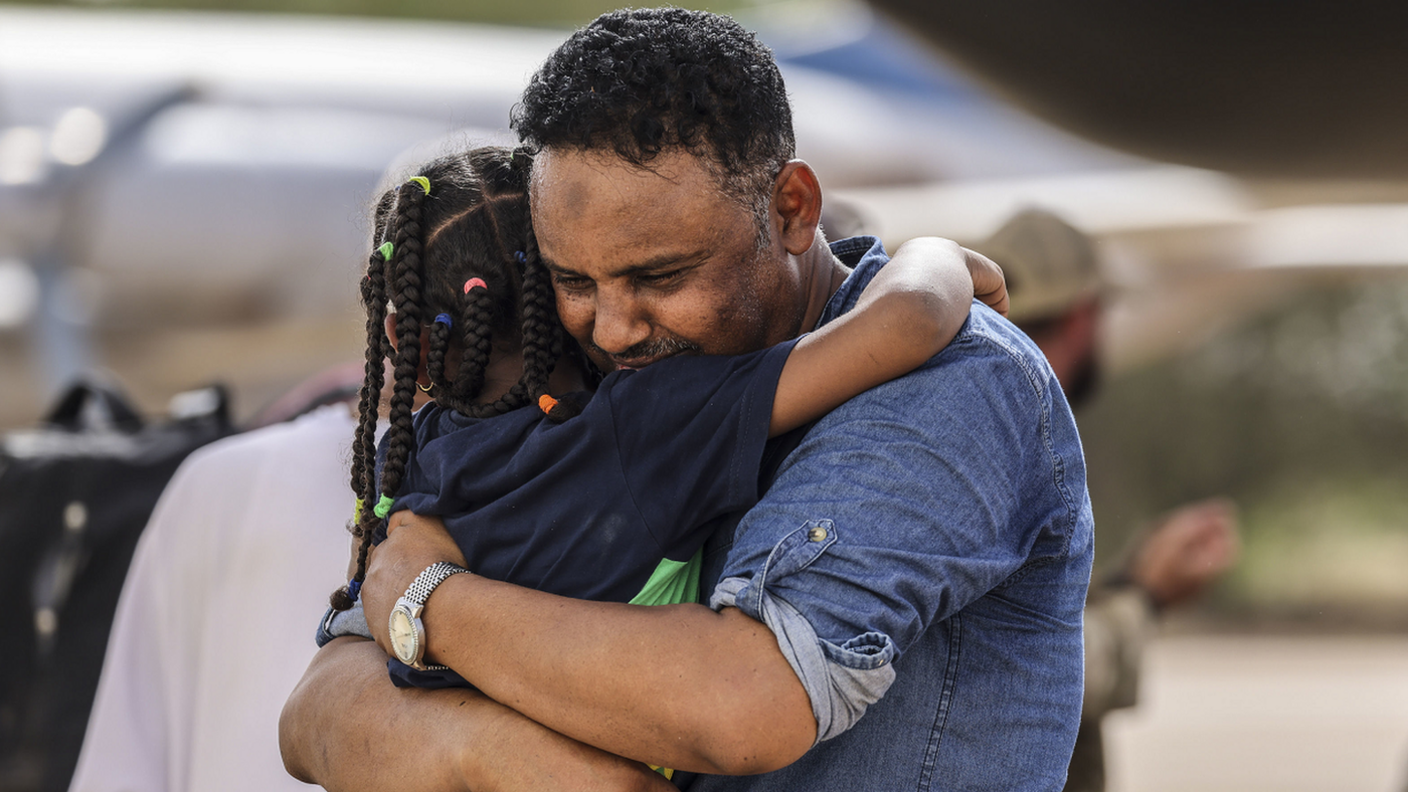Sudan crisis: Derry man and family safely flee conflict
- Published
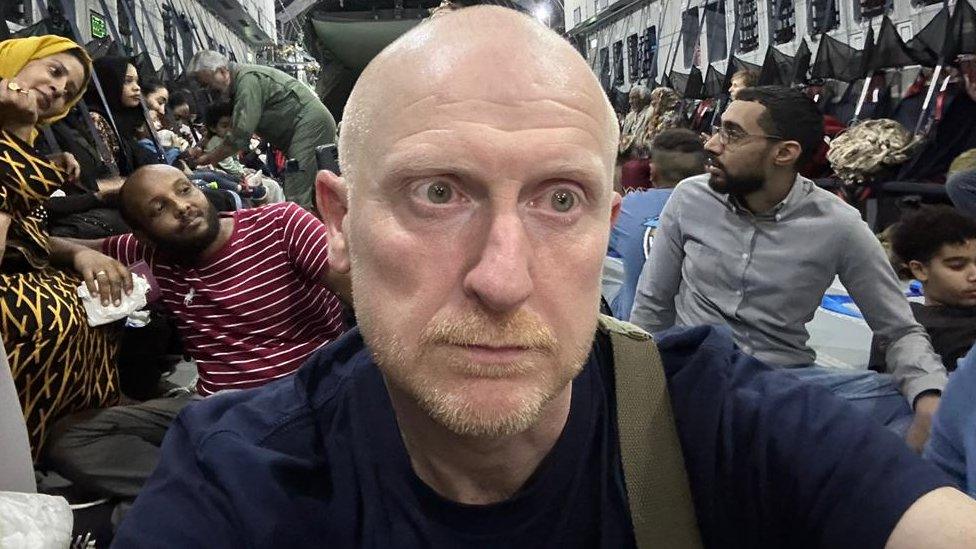
Brian McDaid pictured onboard a military aircraft evacuating people from Sudan
A man who fled Sudan and is now safely back home in Londonderry has said he is thankful to be alive.
Brian McDaid sheltered in a basement with his family in Khartoum as gunfire and shelling was heard in the capital.
However, a Sudanese woman who is an obstetrician in Belfast has pleaded for help to rescue her family from the war-torn country.
Fighting erupted because of a vicious power struggle within Sudan's military leadership.
The clashes are between the regular army and a paramilitary force called the Rapid Support Forces (RSF).
Dr Sarah Ahmed said her parents have biometric residence permits for the UK and could potentially board a British military plane out of Sudan.
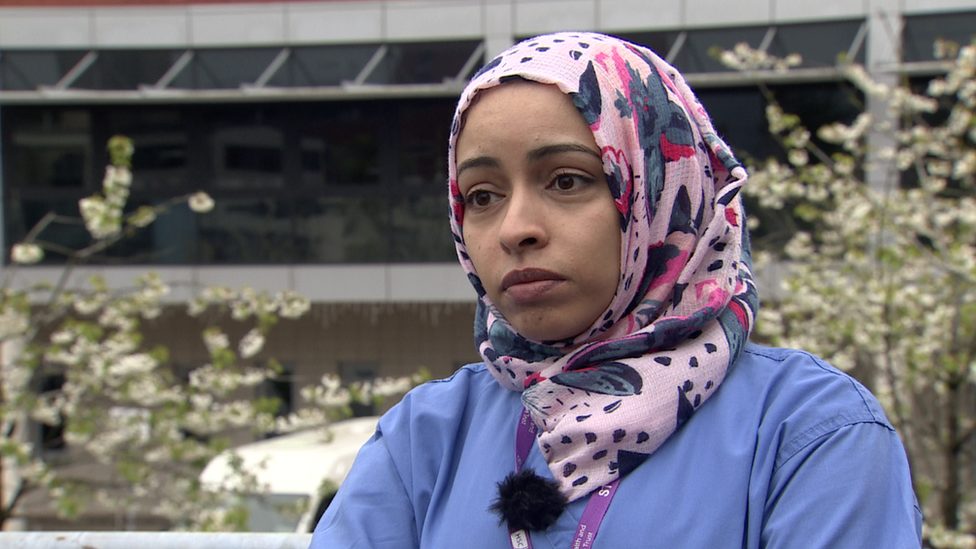
Dr Sarah Ahmed is worried about her family
But they are faced with an impossible decision - of leaving her siblings and their small children behind.
"I don't have any political interest in this - all I need is my family safe," Dr Ahmed said.
"My parents at the moment are trying to leave but they are in a situation where they have to choose between leaving their kids there and come, or just stay there and die all together."
The capital city of Khartoum, where Dr Ahmed's family lives, has been left devastated in parts by gunfire and blasts.
Her sister's home was hit and is no longer safe to live in. The whole family has fled to the outskirts of the city in the hope of being evacuated.
'Someone's wife, someone's sister or brother'
Dr Ahmed moved to Ireland more than 15 years ago. She has been living in Belfast since 2017 where she has two children.
Her parents are hoping to get her two sisters and their children, and her brother and his pregnant wife on a plane with them out of Sudan.
Dr Ahmed said: "For me just to sit here and just be expected to accept this I think - just from a human to a human - this is someone's wife, someone's sister, someone's brother, someone's niece and nephew.
She said there are people on the ground with no access to food, water or money - because the bank system is down.
"It's not safe. I don't have any political interest in this, all I need is my family safe."
Dr Ahmed said she last spoke to her mother on Wednesday.
"Worry is an understatement. I don't know what to do. I just feel helpless," she said.
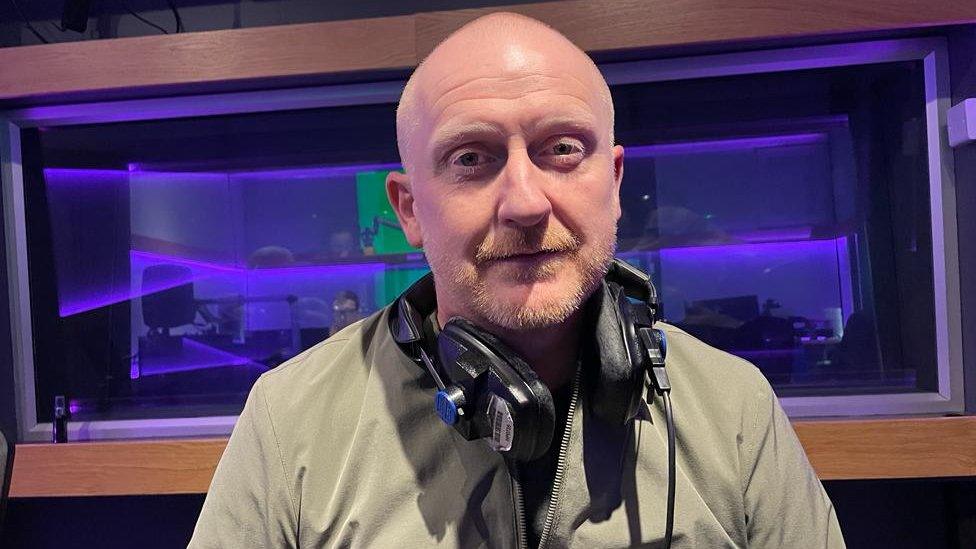
Brian McDaid says time was everything as he tried to flee the country with his family
Mr McDaid, who was a teacher at an international school in Sudan, was flown out of the country via neighbouring Djibouti with his family by the Spanish military.
Speaking to BBC Radio Foyle's The North West Today, Mr McDaid said when fighting broke out his family took refuge in their basement.
"The fighting started to spill out from the main areas," he said.
He was worried somebody could come into the home.
"I know that has happened to a lot of people and heard stories of soldiers coming into houses to get civilian clothes so that they could blend in and sneak away.
"There are some stories that just don't bear thinking about and as soon as that became a real threat we realised we had to go."
Mr McDaid said that being non-Sudanese, he became "very self-conscious" that there could be some resentment towards him from rival forces.
He said there were perceptions of foreign involvement from both sides in the conflict and he knew "it could get a lot more uncomfortable".
Watch: Shocking sounds of heavy bombardment in Sudanese capital Khartoum
As an Irish passport holder, Mr McDaid said he got a call from Irish officials on Sunday morning advising him to go to the Spanish ambassador's residence in Khartoum.
He said his family had to make a split-second decision and decided that where they were hiding was no longer safe.
The Derry native said their initial journey to the airstrip was aborted because of heavy bombing but eventually they had a window to travel.
"Before we left our neighbourhood I thought 'this can't be happening' - there was a little mortar that dropped and fell maybe three metres from one of the cars," he said.
"That was one of the most stressful journeys I have ever made.
"I did see one or two corpses on the way, one of them was covered up and another was just pushed to the side.
"There was also a heavy RSF presence there, and there were a lot of checkpoints on the way and you don't know if they are who they say they are.
"It was nerve-racking stuff. The airstrip was only a 20=minute drive from where we were, but it took more than two hours."
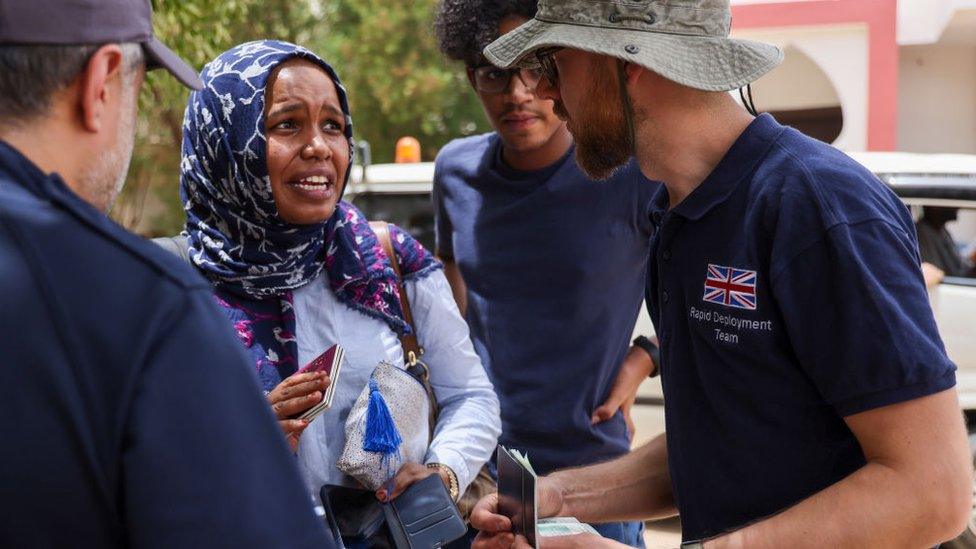
Around 530 people have been airlifted by the UK from Sudan
British nationals who want to leave Sudan have been told "now is the time to move" by the foreign secretary.
The UK government has warned thousands of British nationals still in the country that it cannot guarantee further evacuation flights once the ceasefire ends on Thursday.
More than 530 people have been airlifted to safety on six flights, while warring factions of the Sudanese military mostly observe a three-day truce.
A further 16 Irish citizens and their family members were evacuated from Sudan since Wednesday.
This brings the total number of Irish nationals brought to safety with the assistance of other countries to 88.
Related topics
- Published26 April 2023
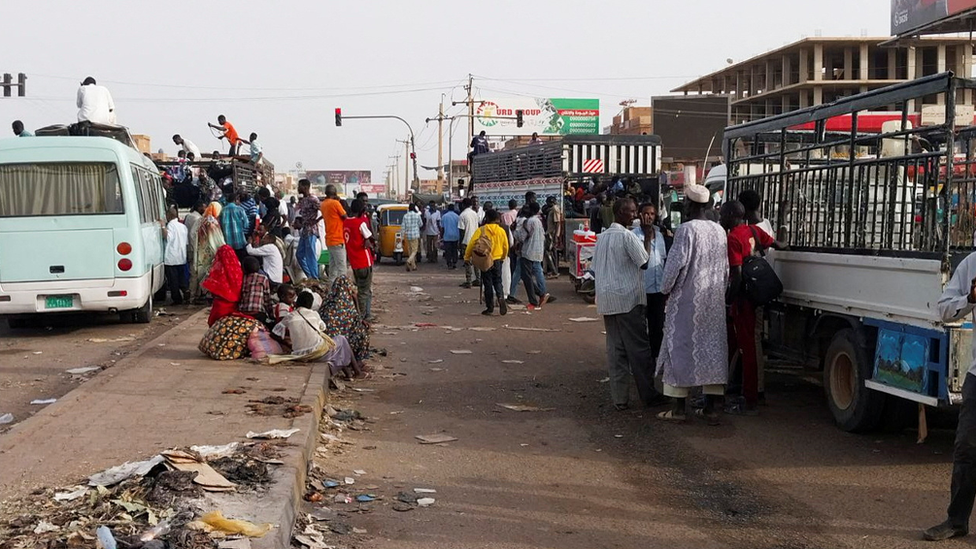
- Published26 April 2023
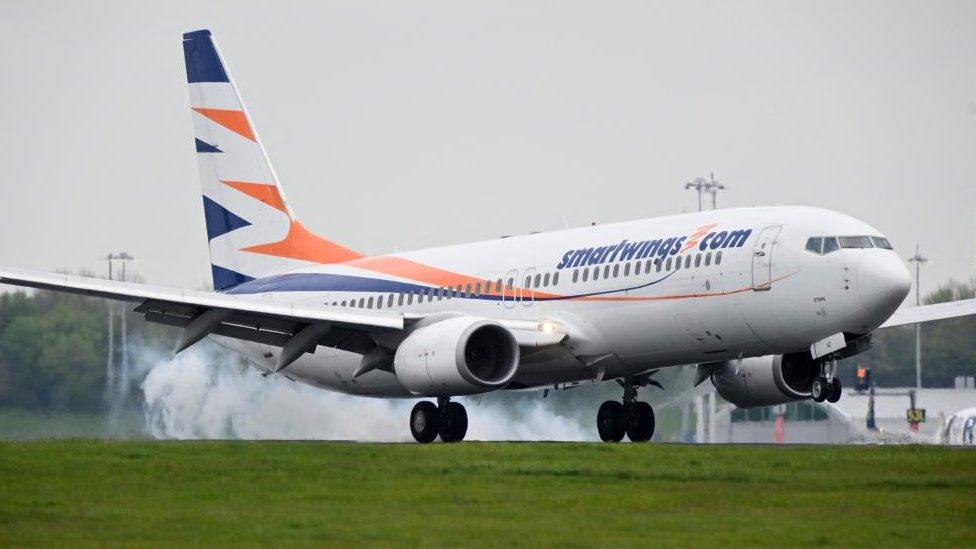
- Published26 April 2023
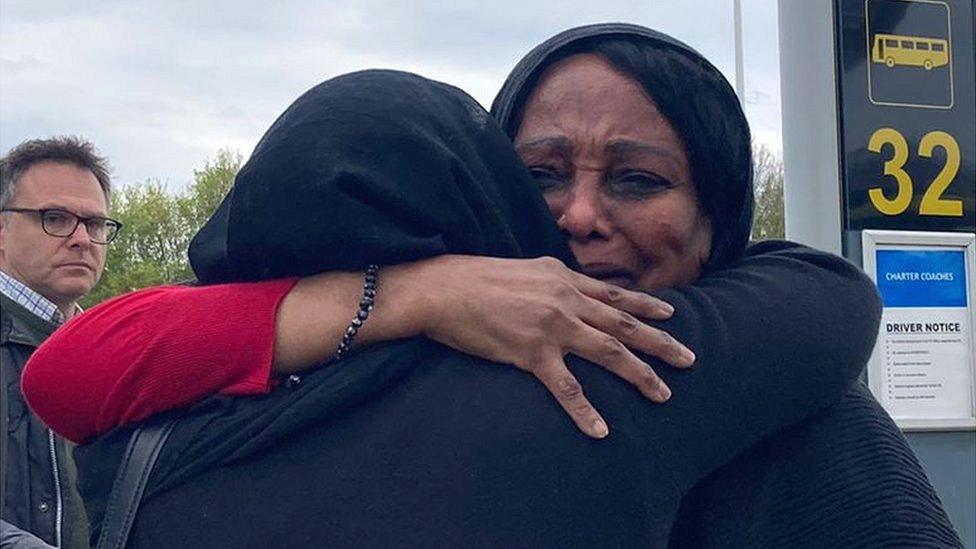
- Published27 April 2023
